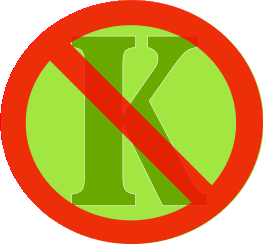Oily Biocharacteristic (Guna) - Foods & Herbs ListCLASSIFICATION OF FOOD, HERBS, & LIFESTYLE

|
Natural Biocharacteristics: Oily Balance My Oily Condition (Oily Guna) $15.95 Browse RecipesOily Stats 
Balance My Oily Condition (Oily Guna)Get the 45 minute presentation 'Balance My Oily Condition (Oily Guna)' given by Joyful Belly founder and director John Immel.
This presentation will show you Ayurvedic essentials on fixing this imbalance, including diet, lifestyle, and herbal tips from Ayurveda.
Price: $15.95
AYURVEDIC PERSPECTIVE ON OILYIn Ayurveda, oily refers to anything moistening. More specifically, oily refers to building substances that increases fat, or are themselves fatty. For example, sugar is Oily.Oils are used throughout Ayurveda to restore strength. Massage with oil prevents premature aging and bestows a healthy, glistening sheen to the skin. Even body builders oil their skin to appear healthy and strong. Oil repels water, preventing evaporation of fluids through the skin much as a film of oil over a simmering soup prevents loss of steam. It moisturizes while it stimulates secretions, helping replenish and rebuild bodily fluids. Types of OilsThere are four types of oils in Ayurveda: ghee, vegetable oil, muscle fat, and bone marrow. Ghee is an important medicine for building strength in Ayurveda because it is the fat that is lightest and easiest to digest. Marrow is the heaviest and most difficult to digest.The Best Oils for Each Dosha
Sticky Oil, Sticky BloodPathological oiliness aggravates Kapha and Pitta. It overwhelms the liver's storage and processing capacity, causing high cholesterol, stagnant, dense blood, and lymphatic obstruction. Oil clogs fluid vessels. Whereas blood stagnation from sweets and carbohydrates creates pure Kapha mucous, blood stagnation from oil creates gall bladder stagnation and skin rash. When lymphatic obstruction blocks release of cellular waste products, the surface of the skin turns red and flushed. Oil makes the blood sticky, causing plaque formation.Excess oleation causes water retention in the abdomen, teary eyes, a coating on the tongue, and soft, buttery stools. Oily foods decrease gastric secretion but increase bile production. As it suppresses hydrochloric acids, fat specifically inhibits protein digestion. Internal OleationOily foods are generally bland. They facilitate easy elimination of wastes, soften dry and hard tissues, lubricate joint spaces, and increase strength wherever there is debility. A teaspoon of ghee with meals helps build ojas, weight, and strength. Internal oleation is a process used in panchakarma cleansing therapies to pull fat soluble toxins from peripheral tissues and soften them.Oily Personality TraitsFats nourish and soften the liver, creating relaxation, vigor, and stabilizing emotions, all highly important for Vata. Oil promotes compassion, kindness, tenderness, and affection. Properly oiled individuals have a "smooth" personality. Oil is cooling and can help a person "chill out." Like water off a duck's back, the stable quality of well-oiled individuals makes them thick skinned and impervious to insult. Healthy oiliness is steadfast, but pathological oiliness creates greed and attachment.Treatments - Reducing Fat, Cholesterol, & OilBitter tasting foods aid fat metabolism, release liver heat, clear plaque from blood vessels, and reduce weight. Bitters cholagogues, such as dandelion root, help scrape fats from tissues. Punarnava and amalaki stimulate microcirculation and metabolism at the cellular level. Blood thinners like turmeric counteract the dense stickiness of oil, invigorating the blood and burning off fats. Mild laxatives like triphala help eliminate fats through the GI tract. Triphala Guggulu is famous for reducing cholesterol. Mild exercise and breathing techniques like pranayama help metabolize unwanted fats. Disclaimer: The herbs that you select depend on the season and your unique imbalances.HELPFUL FOR*'Oily' may be helpful for these symptoms and causes below.CONTRAINDICATIONS / AGGRAVATES / IS AGGRAVATED BY*'Oily' may aggravate, or be aggravated by, these symptoms and causes below.Oily Recipes Listed By StrengthBrowse By Popularity

About the Author John Immel, the founder of Joyful Belly, teaches people how to have a healthy diet and lifestyle with Ayurveda biocharacteristics. His approach to Ayurveda is clinical, yet exudes an ease which many find enjoyable and insightful. John also directs Joyful Belly's School of Ayurveda, offering professional clinical training in Ayurveda for over 15 years.John's interest in Ayurveda and specialization in digestive tract pathology was inspired by a complex digestive disorder acquired from years of international travel, as well as public service work in South Asia. John's commitment to the detailed study of digestive disorders reflects his zeal to get down to the roots of the problem. His hope and belief in the capacity of each & every client to improve their quality of life is nothing short of a personal passion. John's creativity in the kitchen and delight in cooking for others comes from his family oriented upbringing. In addition to his certification in Ayurveda, John holds a bachelor's degree in mathematics from Harvard University. John enjoys sharing Ayurveda within the context of his Catholic roots, and finds Ayurveda gives him an opportunity to participate in the healing mission of the Church. Jesus expressed God's love by feeding and healing the sick. That kindness is the fundamental ministry of Ayurveda as well. Outside of work, John enjoys spending time with his wife and 7 kids, and pursuing his love of theology, philosophy, and language. |
Join Joyful Belly.
Want our top Ayurvedic recipes and health tips?Subscribe to our free newsletter!
















 On MeWe
On MeWe On Pinterest
On Pinterest On Facebook
On Facebook On Twitter
On Twitter On WhatsApp
On WhatsApp On Email
On Email






